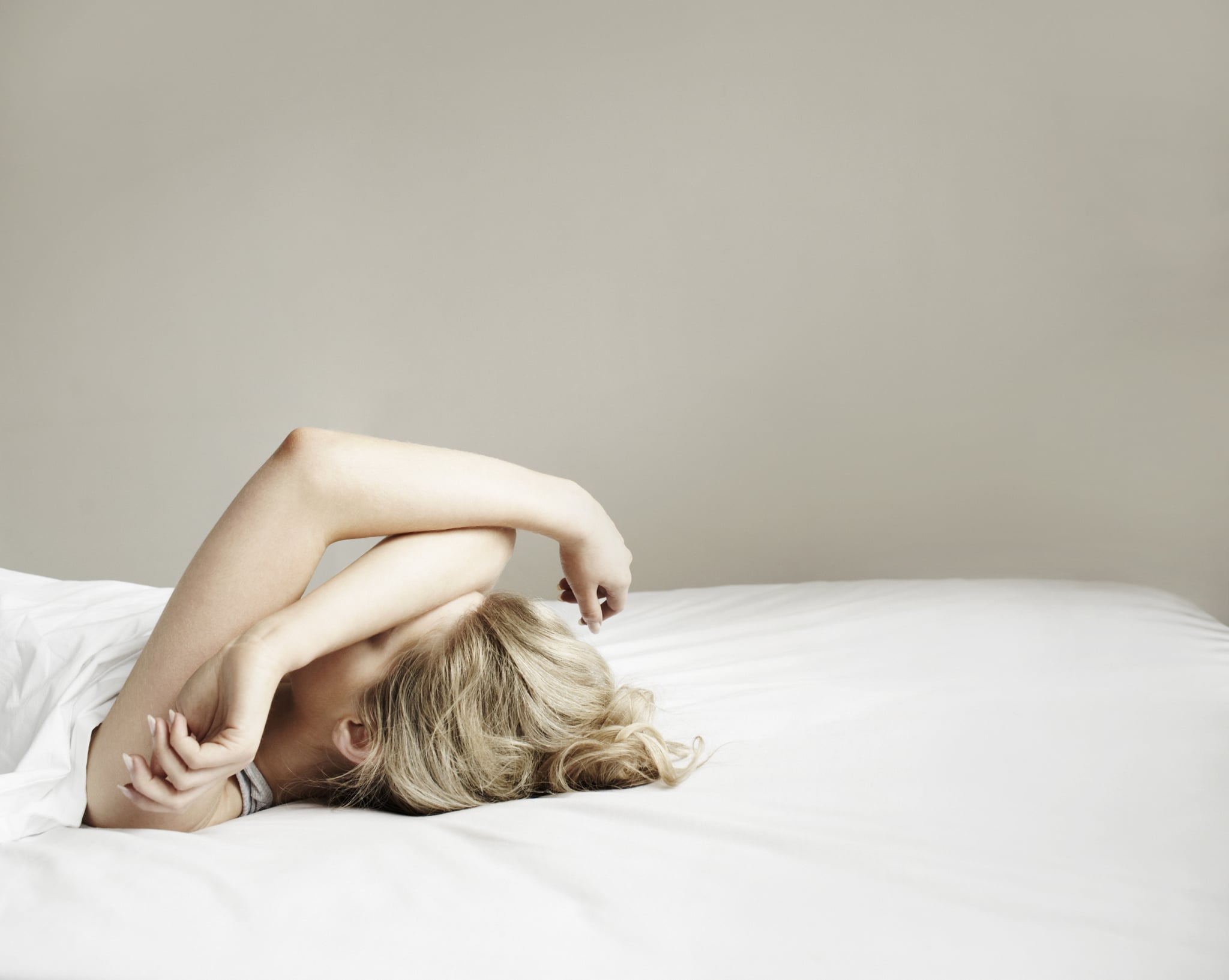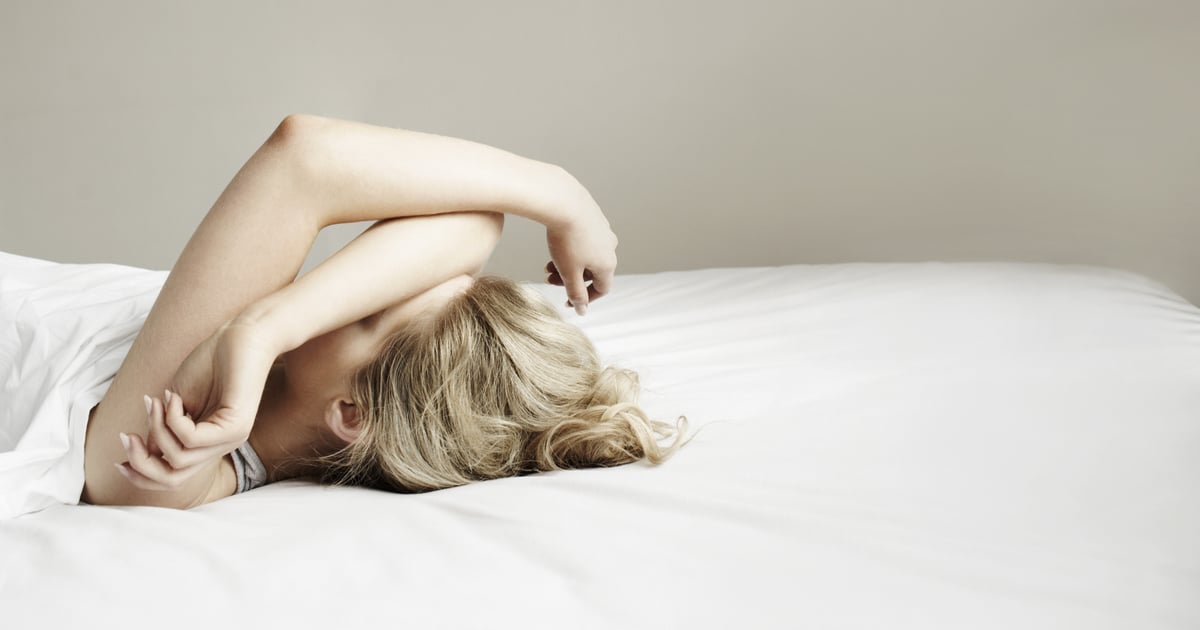
Many people consider naps glorious. Lying down in the middle of the day can help you feel refreshed and ready to tackle your afternoon. But if you’re someone who wakes up from naps feeling more exhausted — or even sick to your stomach — the quick snoozes don’t always feel beneficial or even enjoyable.
Most commonly, this sort of fatigue stems from sleeping too long, which can lead to sleep inertia. Postnap exhaustion or sickness “can occur when the person naps long enough to get into deep sleep, what we call stage N3 sleep,” Benjamin Nager, MD, a neurologist at Northwestern Medicine Huntley Hospital, tells POPSUGAR. “If you wake from a nap and were in stage N3 when you awaken, then you are likely to experience ‘sleep inertia,’ or a feeling of being half asleep after waking.”
Sleep inertia is known to make people feel groggy, disoriented, drowsy, and cognitively impaired. Ahead, find more on sleep inertia, how to avoid it, and other reasons you might feel sick after you wake up from a nap.
Why Do I Feel Sick When I Wake Up?
Sleep inertia is a common cause of postnap sickness. The Centers for Disease Control and Prevention (CDC) describes it as “a temporary disorientation and decline in performance and/or mood after awakening from sleep.” This state of disorientation doesn’t typically last more than 30 minutes, but some research has shown lingering sleep inertia for up to two hours after waking, the CDC states. If someone is sleep deprived, their sleep inertia tends to last longer.
Usually, this problem can be avoided by limiting your nap time. “Power napping or napping for no more than 15 minutes prevents a person from getting into the deep stages of sleep that leave you feeling as though you are still half asleep after the nap,” Dr. Nager says. Some people may be able to sleep for 20 to 30 minutes — or perhaps even a little longer — without feeling groggy, so you might try changing it up if 15 minutes isn’t quite enough.
It’s important to remember that naps shouldn’t be a replacement for the restful, deep sleep you would ideally get at night. “If you find that you need to nap frequently, then it is likely that you are not getting enough sleep, or the sleep quality you are getting is poor,” Dr. Nager explains.
Sleep-Inertia Symptoms
Sleep inertia can present itself in a number of ways. Its symptoms tend to show up upon waking from a nap or deep sleep and then fade as the day goes on. The most common symptoms of sleep inertia, according to The Sleep Doctor, Michael Breus, PhD, are:
- The desire to go back to sleep
- Reduced cognitive function
- Impaired focus and attention
- Impaired spatial memory
- Grogginess
Fortunately, these symptoms tend to subside with time. But research has shown that immediate caffeine intake upon waking, along with bright lights and washing your face, have helped reduce the time of sleep inertia and restore alertness more quickly, per the CDC.
Other Reasons You Might Feel Sick After Waking Up
If you wake up after a nap feeling a bit nauseous, it could be the result of your diet. “Eating prior to sleep, especially fatty foods, alcohol, or other stomach-irritating foods, can cause gastroesophageal reflux,” Dr. Nager explans.
In other words, lying down for a nap after eating a hefty lunch or having a midday cocktail could allow acid to rise up from your stomach, making you feel sick.
“If you are having nausea after napping, I would suggest altering your diet first, eating healthfully and avoiding excessively fatty foods and spicy foods,” he says, particularly before going to sleep. If you find that taking an antacid helps with postnap sickness, then your symptoms could also be the result of GERD or gastritis, Dr. Nager says.
And if your diet seems unlikely to be the culprit, you may also be experiencing a migraine. “Migraine can be accompanied by nausea, and nausea from migraine can occur prior to the headache and, in some cases, be the only feature of migraine,” Dr. Nager explains. You may find that taking a pain reliever with a big glass of water helps, as dehydration often triggers headaches.
But if you’re concerned about feeling sick after you wake up from a nap and it happens more often than not, don’t hesitate to reach out to your healthcare provider, so they can assess your specific symptoms and needs.
— Additional reporting by Alexis Jones
